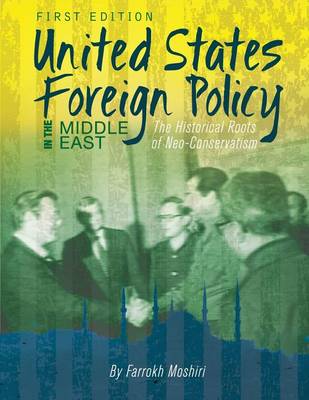Newly expanded and updated, United States Foreign Policy in the Middle East: The Historical Roots of Neo-Conservatism argues that the intellectual and historical origins of Neo-Conservatism can be traced back to the Greco-Persian wars. It contends that neo-Conservatism itself is a deeply flawed world view which, when combined with pressure from interest groups, has led to major American foreign policy mistakes.
The book examines contemporary topics such as the nuclear agreement between Iran and the United States, the roots of ISIS and the Saudi and American role in creating radical Islamic movements, the legacy of the Iraq war, and the role of Congress and domestic pressure groups in formulating American foreign policy towards the Middle East. In addition, it discusses historical topics such as the legacy of the Crusades and behavioralist versus traditionalist approaches to foreign policy, and asserts that current academic training produces advisers and analysts who misunderstand Middle Eastern history, cultures, and traditions.
Finally, the book finds a direct link between foreign policy, the American government's need to maintain an "empire," and the growth of income inequality and lack of social progress domestically.
United States Foreign Policy in the Middle East is an excellent supplemental reader to standard textbooks in international relations and comparative or American government. It is also a good choice for lay readers interested in the Middle East and American foreign policy.
- ISBN10 1631891049
- ISBN13 9781631891045
- Publish Date 16 September 2014
- Publish Status Active
- Imprint Cognella Academic Publishing
- Format Paperback (US Trade)
- Pages 190
- Language English
